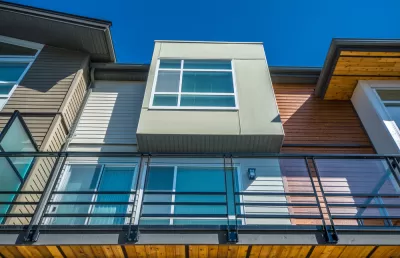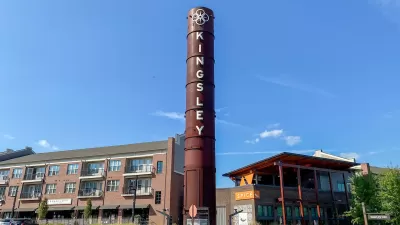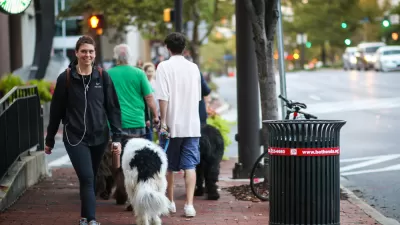Social changes in America relating to work, demographics and the family are changing the face of suburbs around the US.

Suburbs in America have become more diverse and urban and, according to an upcoming study from Demographic Strategies for Real Estate, that change is just getting started. An article by Patrick Sisson in Curbed reports, "This archetypical part of the American landscape, which has constantly been evolving, is in for some massive changes over the next decade that will reshape planning, land-use, and the real estate market." The old cliché of the lily-white suburb may need an update as increasingly American minorities and immigrants are choosing to live in them.
Sisson's article says the cause of this evolution is rooted to foundational changes in the country, "Powered by social and demographic shifts involving young workers, immigrants, working women, and retirees, suburbs will get denser, more diverse, and more urban."
While some U.S. politicians may bemoan what they see as blighted inner cities, home buyers around the country seems to see things differently. "The urban lifestyle is becoming more and more popular, so suburban towns and developers are increasingly catering those looking for a more walkable, dense community. A new supply of smaller homes with little or no yards in high-population areas will meet the demand to commute less and live closer to restaurants and entertainment." This doesn’t just mean homes with smaller footprints, it also means more shared dwellings and apartments; high-density suburbs may be yet another reason for the decline in single family homes around the U.S.
Whichever of these causes is the key driver of the change, the country is changing and the suburbs are changing with it.
FULL STORY: The new American suburb: diverse, dense, and booming

Planetizen Federal Action Tracker
A weekly monitor of how Trump’s orders and actions are impacting planners and planning in America.

Congressman Proposes Bill to Rename DC Metro “Trump Train”
The Make Autorail Great Again Act would withhold federal funding to the system until the Washington Metropolitan Area Transit Authority (WMATA), rebrands as the Washington Metropolitan Authority for Greater Access (WMAGA).

The Simple Legislative Tool Transforming Vacant Downtowns
In California, Michigan and Georgia, an easy win is bringing dollars — and delight — back to city centers.

The States Losing Rural Delivery Rooms at an Alarming Pace
In some states, as few as 9% of rural hospitals still deliver babies. As a result, rising pre-term births, no adequate pre-term care and "harrowing" close calls are a growing reality.

The Small South Asian Republic Going all in on EVs
Thanks to one simple policy change less than five years ago, 65% of new cars in this Himalayan country are now electric.

DC Backpedals on Bike Lane Protection, Swaps Barriers for Paint
Citing aesthetic concerns, the city is removing the concrete barriers and flexposts that once separated Arizona Avenue cyclists from motor vehicles.
Urban Design for Planners 1: Software Tools
This six-course series explores essential urban design concepts using open source software and equips planners with the tools they need to participate fully in the urban design process.
Planning for Universal Design
Learn the tools for implementing Universal Design in planning regulations.
Smith Gee Studio
City of Charlotte
City of Camden Redevelopment Agency
City of Astoria
Transportation Research & Education Center (TREC) at Portland State University
US High Speed Rail Association
City of Camden Redevelopment Agency
Municipality of Princeton (NJ)




























